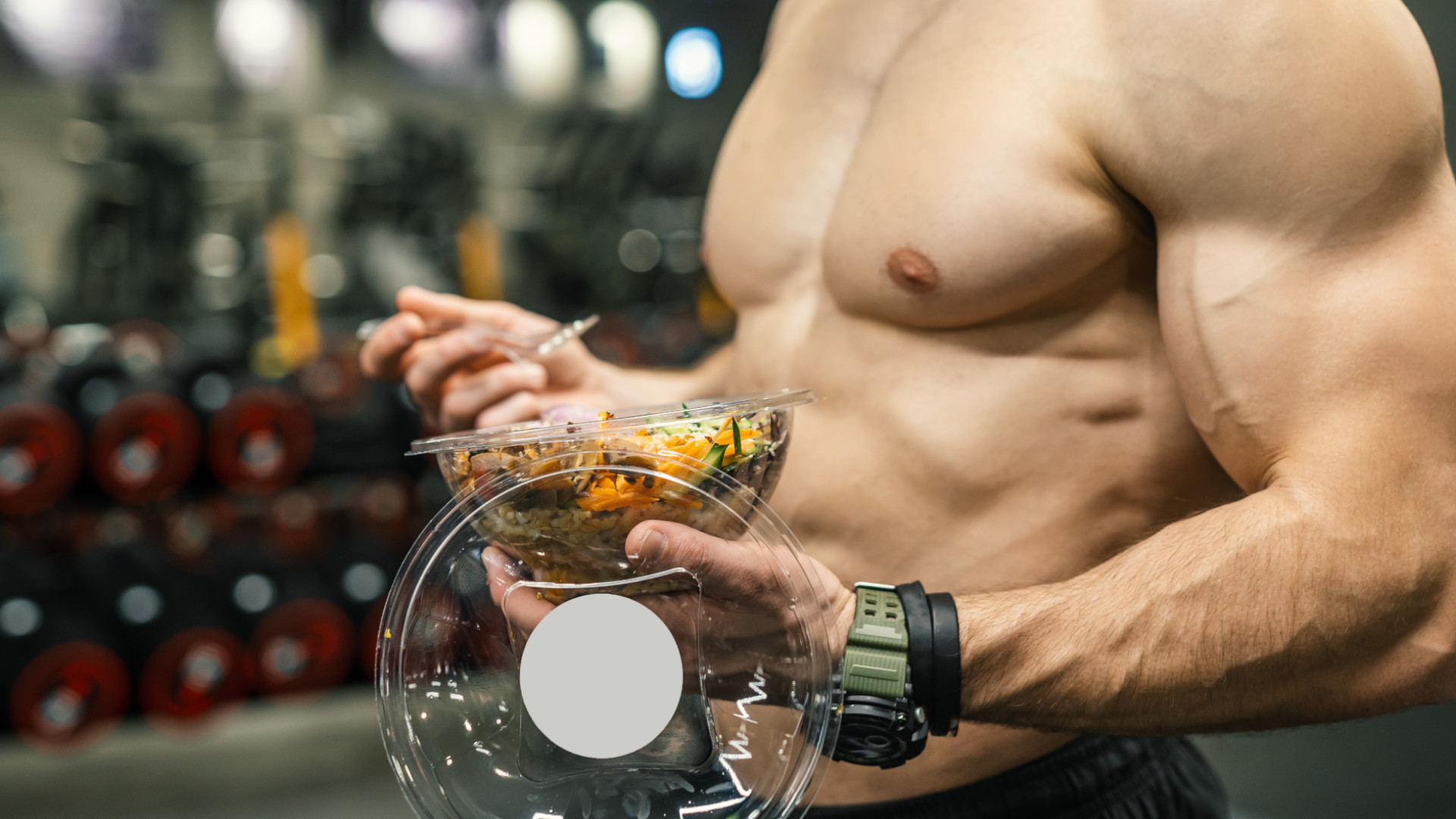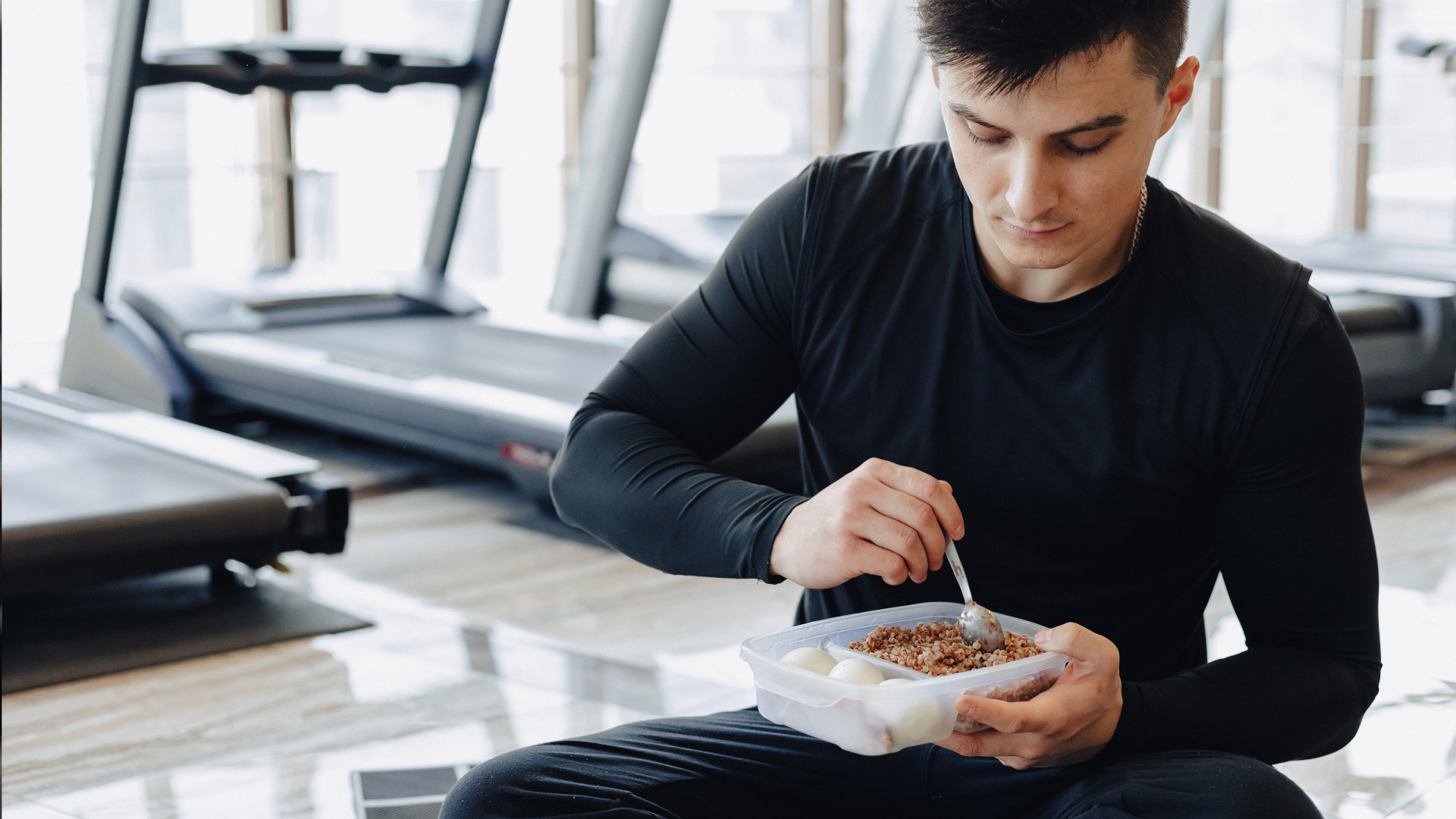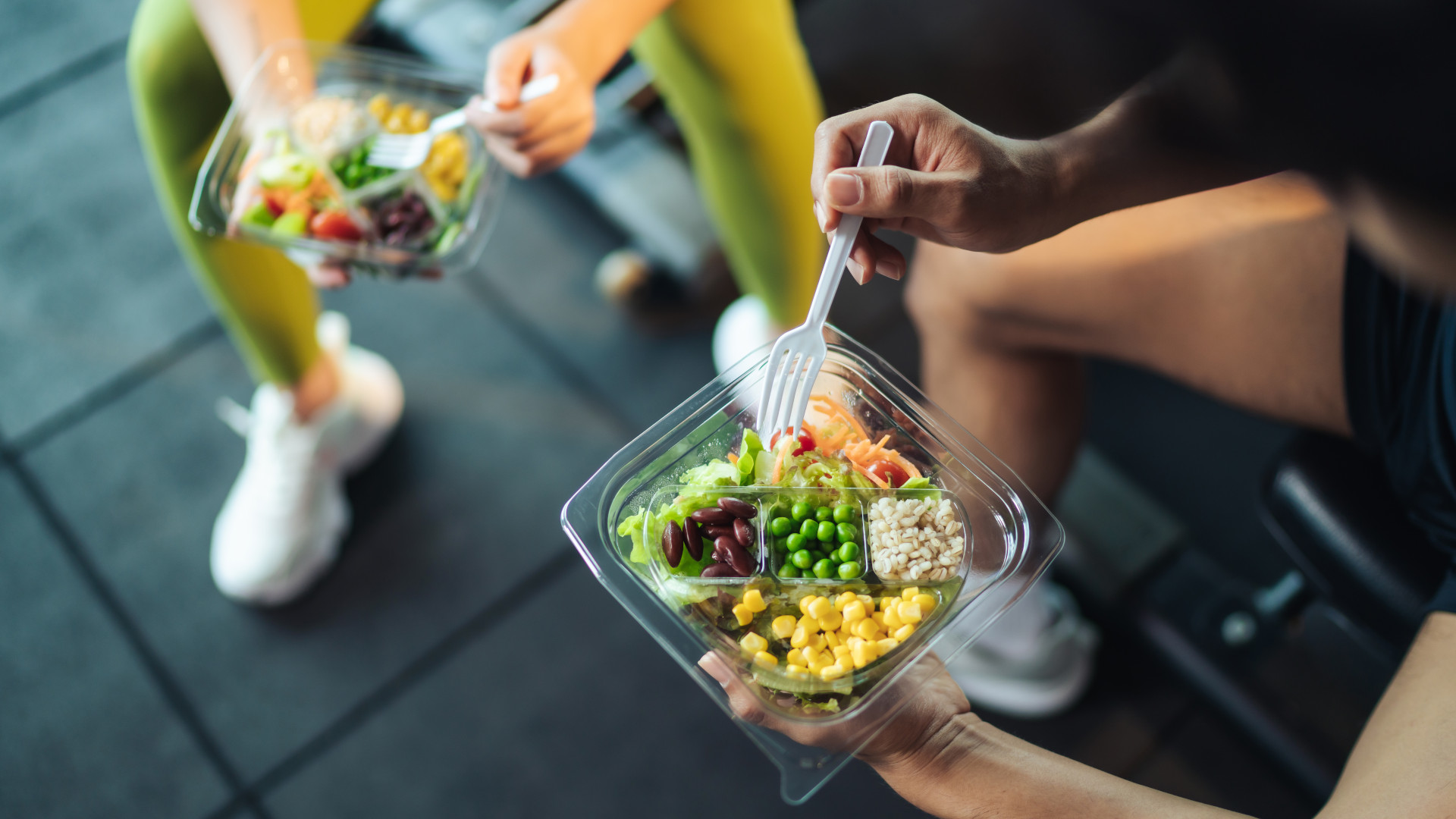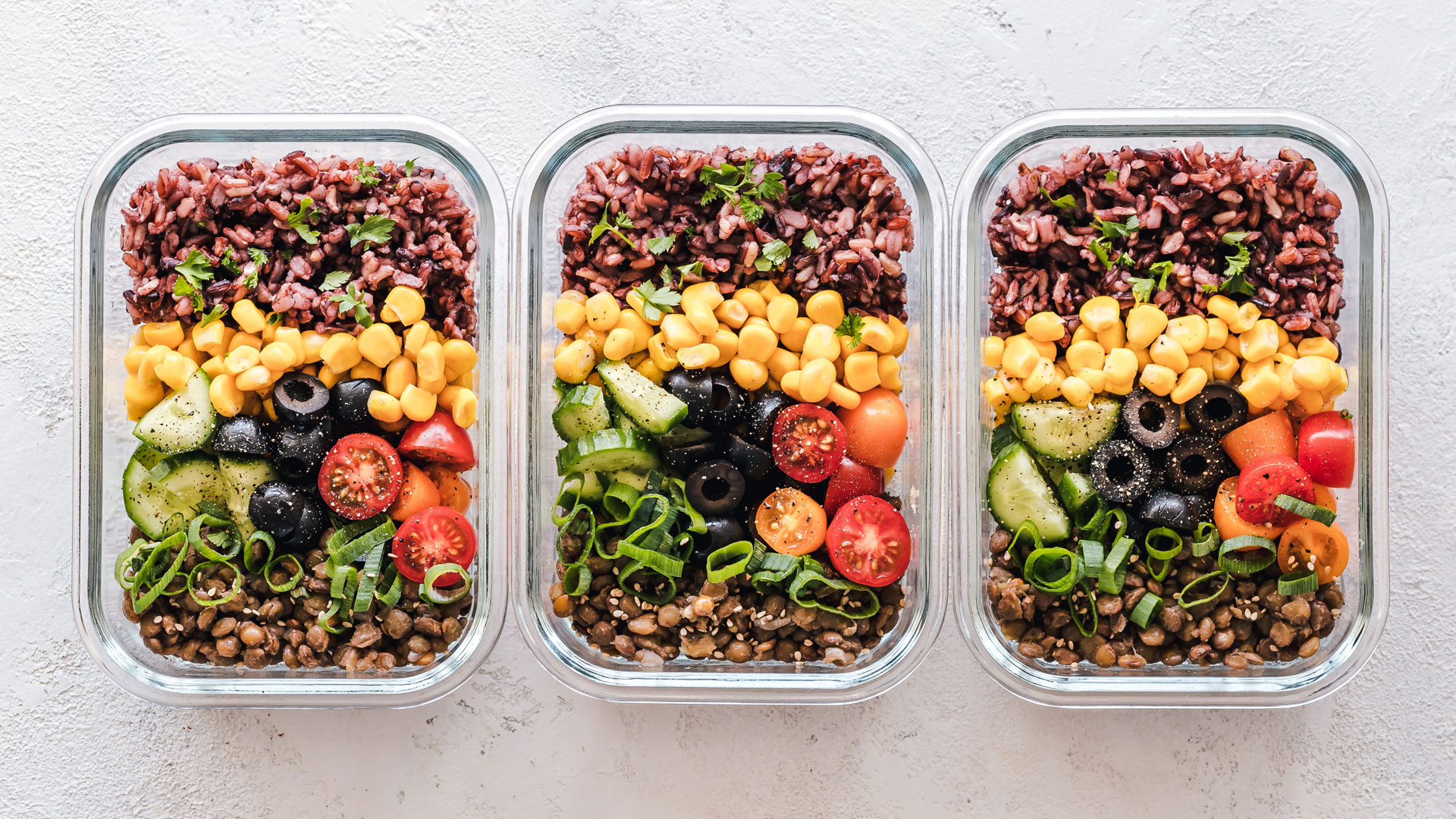The Winter bulk: 5 expert tips to pack on muscle the right way this season
An expert shares how to build lean muscle and avoid the 'dirty bulk'


It’s that time of year when the shorts and vests go back to the bottom of the draw, baggy t-shirts and sweatpants come out, we chomp on extra food and use that additional fuel to push even harder in the gym. It can only mean one thing…winter bulking season, AKA time to build more muscle.
Technically, you can bulk whenever you like, it doesn’t have to be subject to the winter. But, as our physiques are more likely to be hidden beneath multiple, baggier layers, many people embrace the opportunity to focus this period on building their physiques.
Get carried away though, and your bulk can easily become ineffective, leading you to gain more body fat, feeling sluggish and can even mean losing gains come cutting.
Looking to embark on a bulk yourself? An expert shares how to do so the right way this season to help you pack on lean muscle.
What is 'bulking'?
Bulking is where you’re eating in a calorie surplus, so you’re consuming more calories than you burn in a day, in order to build muscle. As mentioned earlier, many people embark on a bulk during the winter because it’s a period where we are less likely to be showing off their chiseled bodies and often consume more food, especially around the festive period.
Not everyone finds it easy to eat extra calories though, or gain weight, which is why some people use a weight gainer, during a bulk. This is similar to a protein powder, however, each serving contains high amount of calories. While these are fine to include alongside your diet, they shouldn't be used as your main source of calories.

Can I eat what I want during a bulk?
Some people would like to think so, seeing a bulk as an opportunity to binge on junk food. This can become even more tempting during the winter, and festive period, when there’s often an abundance of chocolate and alcohol. But, fall into this trap, and Steve Chambers, Certified Personal Trainer at Ultimate Performance, says this can quickly turn into the dreaded ‘dirty bulk’.
Get all the latest news, reviews, deals and buying guides on gorgeous tech, home and active products from the T3 experts
“The origins of the ‘dirty bulk’ lie in the bodybuilding circles of the 70s and 80s, which popularised the concept that excessive calorie intake was crucial for muscle growth,” he says. “Calorie-dense, hyper-palatable foods became a dietary staple due to trainees’ incredibly high-calorie requirements, because it was almost impossible to hit these targets purely consuming unprocessed, nutrient-dense foods alone.”
No doubt, bulking this way will, of course, add size to your frame. However, it will also add unwanted fat, which can also involve detrimental effects to your health. to health problems. "Significant fat gain also involves reduced insulin sensitivity, increased visceral fat, and lower testosterone," explains Steve. "And that’s not to mention the increased risk of high blood pressure, cardiovascular disease, and high cholesterol."
He also adds that the more fat you gain from consuming large amounts of the wrong types of foods, the more aggressively you'll need to diet during your following 'cut phase'. "This can mean losing hard-earned additional muscle in the process."
How to bulk up (the right way)

So, that begs the questions: how many calories should I be eating during a bulk? The good news is that you don’t actually have to go crazy. “Research shows that eating at, or just over, your maintenance calorie intake is more than sufficient to gain muscle,” says Steve.
“A 2013 study of resistance-trained athletes found that the group who consumed a small surplus gained roughly the same amount of muscle and strength as the group who consumed an extra 600 calories but gained an extra 20% body fat.”
Just to clarify, you will gain body fat during a bulk, this is inevitable. However, the amount will be determined by the type of foods you’re eating, whether that’s good carbs, lean protein and healthy fats, versus high-calorie, dense foods.
Below, Steve shares five tips to help you to effectively add size to your frame without gaining too much fat:
1. Focus on fat loss before muscle gain
“This might sound completely counterintuitive to your bulking goals, but a fat loss approach will do far more to improve your body composition than a dirty bulk that leaves you inflamed, sluggish and self-conscious.
"Improving your body composition accentuates your muscle definition, creating the illusion of looking bigger. For most people, dieting to around 8-10% body fat puts you in a good position to then focus on a modest calorie surplus to gain muscle, and even if you do gain some fat, you’ll still be in relatively good shape.”

2. Create a modest calorie surplus
“Setting your calorie goal is usually a case of trial and error, so work from your maintenance calorie intake, using an online calculator, and adjust based on progress.
"For a relatively well-trained person, anything from a 250-500 calorie increase from your maintenance levels per day is likely to be sufficient to see your numbers in the gym go up and to drive hypertrophy, providing those calories come from good nutritional sources.
"Unless you’re planning to compete in a powerlifting or bodybuilding show, or you’re in the running to star in a superhero film, the 5-6,000-calorie a day diet is just not necessary for the average person looking to bulk up a bit.”
3. Nail the basics

“If you want to pack on muscle, you need to get the basics right and this means is following a well-structured strength-training programme that works your entire body.
“The most effective way to drive hypertrophy is to progressively overload your muscles, which means making each workout progressively more difficult. Unless you’re sufficiently challenging your muscles, they have no incentive to grow. So, train with intensity, but don’t sacrifice form.
"Also, don’t jump around from programme to programme. Find one that works everything from your chest, back, shoulders, arms, core, and your lower body and stick to it!"
4. Manage sleep and stress
“Research demonstrates that sleep impacts muscle protein synthesis, the driving force behind adaptive responses to exercise. Sleep loss of just two hours can double the rate of muscle loss.
"Studies also consistently link chronic stress to low testosterone, impaired gym performance, and muscle loss. So, if you’re serious about maximising your gym results, invest in improving your sleep hygiene and managing stress.”
- A fitness tracker can be an excellent way to get more insight into your sleeping patterns
5. Maximise nutrient intake

“While there is scope for a little more dietary flexibility in a muscle-gain phase, you should still aim to obtain the majority of your intake from single-ingredient, high-quality sources. Not only will you remain metabolically healthy, but it will prime you for gaining lean muscle rather than a ton of body fat.
“But, this is also where many people trip up. Consuming 3,500 calories of just chicken and broccoli every day is going to be hard to do, and to sustain. So, you will need to introduce a higher ratio of carbohydrates to hit your calorie surplus targets.
“If you want to build muscle, I would aim for between 1.5g to 2g of protein per kg of bodyweight. So, if you weight 80kg, aim for 160g of protein per day in order to really fuel your workouts and help elicit muscle growth.
"Spread your protein intake throughout the day and complement this diet with good quality carb sources such as sweet potatoes, healthy fats such as avocados and nuts (not peanuts!) and have a good handful of vegetables with every meal.”
- Struggle to hit your protein intake? Check out our pick of the best protein powder

Bryony’s T3’s official ‘gym-bunny’ and Active Staff Writer, covering all things fitness. She is a certified personal trainer and also a part-time fitness instructor. In her spare time, you will find her in her natural habitat - the gym - where her style of training is a hybrid of bodybuilding and powerlifting. Bryony loves writing about accessible workouts, nutrition and testing innovative fitness products that help you reach your fitness goals and take your training to the next level.